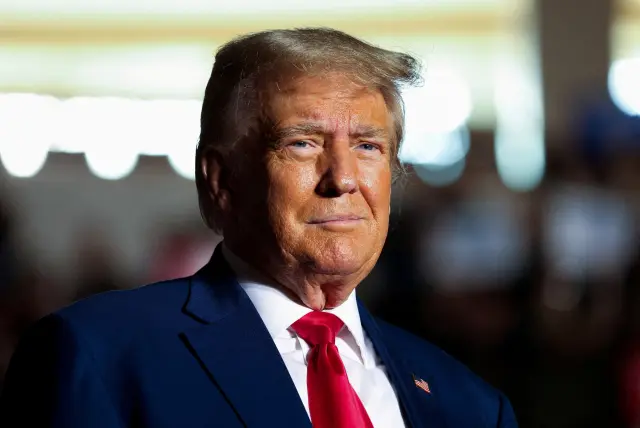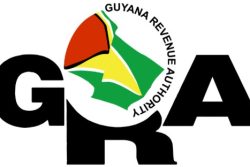WASHINGTON, (Reuters) – Donald Trump pleaded not guilty today to federal charges that he orchestrated a plot to try to overturn his 2020 election loss in what U.S. prosecutors call an unprecedented effort by the then-president to undermine the pillars of American democracy.
Trump, the front-runner for the 2024 Republican presidential nomination, entered his plea in a Washington courtroom half a mile (1 km) from the U.S. Capitol, the building his supporters stormed on Jan. 6, 2021, to try to stop Congress from certifying his defeat.
The plea – the third for Trump in four months – kicks off months of pretrial legal wrangling that will unfold against the backdrop of the presidential campaign, in which Trump is seeking a rematch against Democratic President Joe Biden.
In a 45-page indictment on Tuesday, Special Counsel Jack Smith accused Trump and his allies of promoting false claims the election was rigged, pressuring state and federal officials to alter the results and assembling fake slates of electors to try to wrest electoral votes from Biden.
Smith was seated in the front row as Trump, wearing a blue suit and red tie, entered his plea before U.S. Magistrate Judge Moxila Upadhyaya. Trump sat with his hands folded while awaiting the judge’s entry.
Trump, 77, faces four counts, including conspiracy to defraud the U.S., to deprive citizens of their right to have their votes counted and to obstruct an official proceeding. The most serious charge carries a maximum prison sentence of 20 years.
Trump has portrayed the indictment, as well as the other criminal cases against him, as a “witch hunt” intended to derail his White House campaign. In a series of social media posts since Tuesday, he has accused the Biden administration of targeting him for political gain.
He previously pleaded not guilty to federal charges that he retained classified documents after leaving office and New York state charges that he falsified documents in connection with hush money payments to a porn star.
Trump may soon face more charges in Georgia, where a state prosecutor is investigating his attempts to overturn the election there. The Atlanta-area prosecutor, Fani Willis, has said she will file indictments by mid-August.
“I NEED ONE MORE INDICTMENT TO ENSURE MY ELECTION!” Trump wrote on his Truth Social media platform ahead of his Thursday court appearance.
TRUMP RETAINS POLLING LEAD
About half of Republicans said they would not vote for Trump if he were convicted of a felony, according to a new Reuters/Ipsos poll, underscoring the potential risks his legal entanglements pose for his candidacy.
But the same poll, taken after Tuesday’s indictment, also demonstrated his remarkable resiliency in the Republican primary race. He earned the support of 47% of Republicans, extending his lead over second-place Florida Governor Ron DeSantis, at 13%.
Three-quarters of Republicans said they agreed that the charges were “politically motivated,” showing that Trump’s claim that he is the victim of political persecution resonates with his base.
The vast majority of Republican leaders, including several competing with Trump for the White House, have either defended him or offered muted criticism, instead accusing the Biden administration of weaponizing the Justice Department against a campaign foe.
Many of the allegations in Tuesday’s indictment had been well-documented in media reports and the investigation conducted by a U.S. House of Representatives select committee.
But the indictment featured some details that were not widely known, including several based on grand jury testimony and contemporaneous notes from former Vice President Mike Pence, who is also running for the Republican presidential nomination.
The indictment describes a phone call in which Pence told Trump there was no legal basis for the theory that Pence could block certification of the election.
“You’re too honest,” Trump responded, according to prosecutors.
Although Pence repeatedly told Trump he lacked the authority to reject electoral votes from certain states, Trump kept repeating the claim.
On Jan. 6, as he spoke to his supporters before they attacked the Capitol, Trump said: “If Mike Pence does the right thing, we win the election.” Some rioters at the Capitol later chanted, “Hang Mike Pence!”
Far from deterred by the violence, Trump and an unnamed co-conspirator kept calling Republican members of Congress hours after the riot had ended, still intent on blocking certification, the indictment said.
“We need you, our Republican friends, to just try to slow it down,” the co-conspirator said in a voicemail to one U.S. senator, according to prosecutors. The indictment’s description of the co-conspirator makes clear it was Rudy Giuliani, Trump’s former personal attorney.
Pence was one of the few prominent Republicans to criticize Trump on Tuesday, saying that “anyone who puts himself over the Constitution should never be president.”







